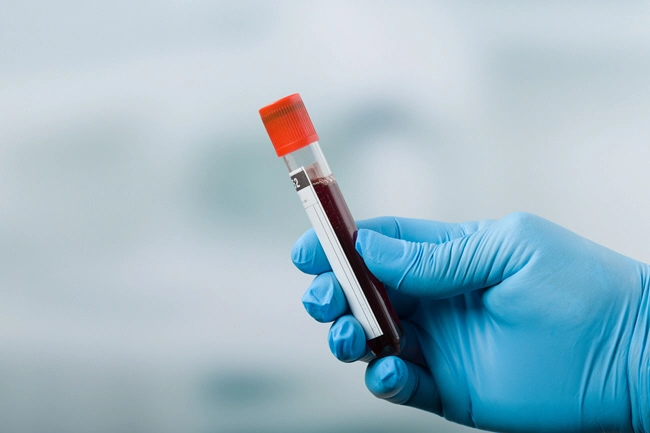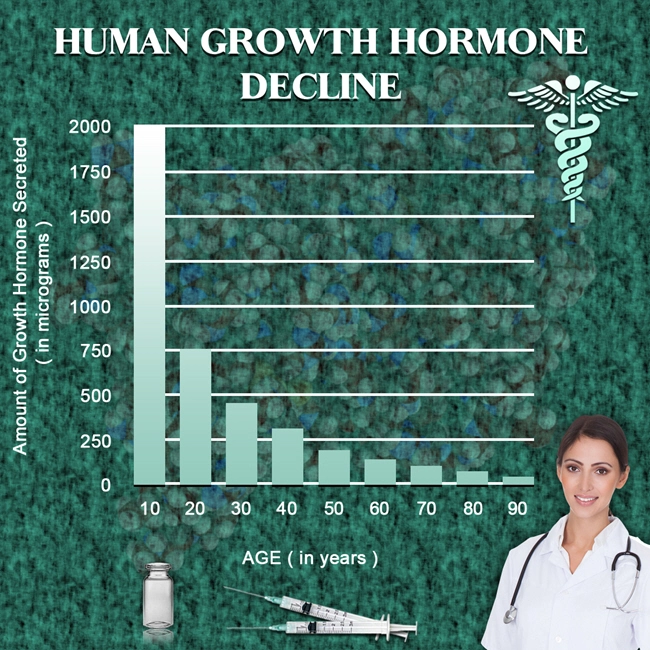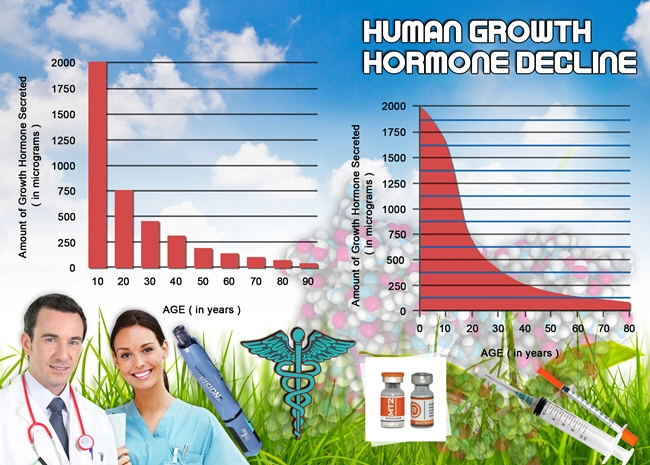
Introduction to Penile Atrophy
Penile atrophy, commonly referred to as penis shrinkage, is a condition that can cause significant distress and concern among men. It is important for American males to understand the factors contributing to this condition and the importance of early detection through regular urological examinations. This article aims to provide a comprehensive overview of penile atrophy, its causes, and the critical role of urological exams in managing this condition effectively.
What is Penile Atrophy?
Penile atrophy refers to the reduction in the size of the penis, which can occur due to various factors including aging, hormonal imbalances, and certain medical conditions. It is not merely a cosmetic concern but can also impact sexual function and overall quality of life. Understanding the underlying causes is crucial for effective management and treatment.
Causes of Penile Atrophy
Several factors can contribute to penile atrophy. Aging is a primary cause, as the natural decline in testosterone levels can lead to reduced penile size. Additionally, conditions such as Peyronie's disease, which involves the development of fibrous scar tissue inside the penis, can cause curvature and shrinkage. Other potential causes include prolonged use of certain medications, such as those used to treat prostate enlargement, and lifestyle factors like smoking and excessive alcohol consumption.
The Importance of Urological Exams
Regular urological examinations are essential for the early detection of penile atrophy. These exams can help identify changes in penile size and function before they become severe, allowing for timely intervention. Urologists can perform a thorough physical examination, assess medical history, and order necessary tests to diagnose the condition accurately.
Navigating Urological Exams
For many men, the thought of undergoing a urological exam can be daunting. However, understanding the process can help alleviate anxiety. During a urological exam, the doctor will typically start with a detailed discussion of your medical history and any symptoms you may be experiencing. This is followed by a physical examination, which may include measuring the penis and assessing its function. Additional tests, such as blood tests to check hormone levels or imaging studies, may be recommended based on the initial findings.
Early Detection and Treatment Options
Early detection of penile atrophy through regular urological exams can significantly improve outcomes. Treatment options vary depending on the underlying cause but may include hormone therapy to address testosterone deficiencies, medications to treat conditions like Peyronie's disease, and lifestyle modifications to mitigate risk factors. In some cases, surgical interventions may be necessary to correct severe cases of penile atrophy.
The Role of Lifestyle in Prevention
Preventive measures play a crucial role in managing penile atrophy. Maintaining a healthy lifestyle, including regular exercise, a balanced diet, and avoiding smoking and excessive alcohol consumption, can help reduce the risk of developing this condition. Additionally, managing chronic conditions such as diabetes and hypertension, which can contribute to penile atrophy, is essential.
Conclusion: Empowering Men Through Knowledge and Action
Penile atrophy is a condition that can significantly impact the lives of American males. By understanding the causes and importance of early detection through regular urological exams, men can take proactive steps to manage and potentially prevent this condition. Empowering men with knowledge and encouraging them to seek timely medical advice can lead to better health outcomes and an improved quality of life.
In summary, penile atrophy is a manageable condition when addressed early. Regular urological exams, coupled with a healthy lifestyle and appropriate medical interventions, can help American males maintain their penile health and overall well-being.
Contact Us Today For A Free Consultation
Dear Patient,
Once you have completing the above contact form, for security purposes and confirmation, please confirm your information by calling us.
Please call now: 1-800-380-5339.
Welcoming You To Our Clinic, Professor Tom Henderson.

- Penile Atrophy: Symptoms, Causes, and Management Strategies for American Males [Last Updated On: February 21st, 2025] [Originally Added On: February 21st, 2025]
- Deciphering the Mystique Surrounding Male Genital Diminution: Reality vs. Folklore [Last Updated On: February 25th, 2025] [Originally Added On: February 25th, 2025]
- Grasping the Enigma of Male Genital Diminishment: Comprehending Causes and Implications [Last Updated On: February 26th, 2025] [Originally Added On: February 26th, 2025]
- Understanding the Process: The Evolution of Male Sexual Organ Size Through the Years [Last Updated On: February 27th, 2025] [Originally Added On: February 27th, 2025]
- Decoding the Enigma: A Scientific Approach to Hormonal Balance, Human Health, and the Phenomenon of Penile Shrinkage [Last Updated On: February 28th, 2025] [Originally Added On: February 28th, 2025]
- Exploring the Interplay: Body Weight, Dietary Habits and Sexual Health [Last Updated On: February 28th, 2025] [Originally Added On: February 28th, 2025]
- Unveiling Andropause: Understanding Male Menopause and Its Effects on Penile Health [Last Updated On: March 1st, 2025] [Originally Added On: March 1st, 2025]
- Demystifying the Enigma: A Candid Talk on Penile Retraction [Last Updated On: March 1st, 2025] [Originally Added On: March 1st, 2025]
- The Enigma of Anxiety: Exploring its Impact on Male Reproductive Health [Last Updated On: March 2nd, 2025] [Originally Added On: March 2nd, 2025]
- Exploring Testosterone: Its Critical Role in Muscle Mass, Fat Distribution, and Bone Health [Last Updated On: March 3rd, 2025] [Originally Added On: March 3rd, 2025]
- Understanding Physical Changes After Prostate Surgery: Insights and Coping [Last Updated On: March 4th, 2025] [Originally Added On: March 4th, 2025]
- Linking Physical Activity to Male Sexual Health and Preventing Penile Shrinkage [Last Updated On: March 5th, 2025] [Originally Added On: March 5th, 2025]
- Understanding Blood Flow's Role in Penile Health and Erection Quality [Last Updated On: March 6th, 2025] [Originally Added On: March 6th, 2025]
- Genetic Predispositions and Lifestyle Choices: Unraveling the Factors Behind Penis Size and Shrinkage [Last Updated On: March 6th, 2025] [Originally Added On: March 6th, 2025]
- Impact of Smoking and Alcohol on Male Sexual Health: Lifestyle Factors Unveiled [Last Updated On: March 7th, 2025] [Originally Added On: March 7th, 2025]
- Debunking Myths and Facts: Understanding the Causes of Penis Shrinkage in Men [Last Updated On: March 8th, 2025] [Originally Added On: March 8th, 2025]
- Understanding Chronic Illness Effects on Genital Health in American Men: Strategies for Wellness [Last Updated On: March 9th, 2025] [Originally Added On: March 9th, 2025]
- Unveiling the Link Between Diabetes and Penile Size: A Metabolic Perspective [Last Updated On: March 12th, 2025] [Originally Added On: March 12th, 2025]
- Environmental Toxins and Penis Shrinkage: Exploring the Impact on American Males [Last Updated On: March 13th, 2025] [Originally Added On: March 13th, 2025]
- Understanding Global Variations in Penile Dimensions: A Comprehensive Overview [Last Updated On: March 15th, 2025] [Originally Added On: March 15th, 2025]
- Obesity's Impact on Genital Health: Understanding Penis Shrinkage in American Males [Last Updated On: March 18th, 2025] [Originally Added On: March 18th, 2025]
- Inflammation and Oxidative Stress: Hidden Causes of Penile Shrinkage in American Males [Last Updated On: March 18th, 2025] [Originally Added On: March 18th, 2025]
- Weight Loss Reverses Penile Length Reduction in American Males: Scientific Insights [Last Updated On: March 18th, 2025] [Originally Added On: March 18th, 2025]
- High Blood Pressure's Impact on Penis Size: Understanding Shrinkage and Prevention [Last Updated On: March 18th, 2025] [Originally Added On: March 18th, 2025]
- Diet and Nutrition: Key to Preventing Penile Shrinkage and Enhancing Health [Last Updated On: March 19th, 2025] [Originally Added On: March 19th, 2025]
- Hormonal Imbalances and Penis Size: Understanding Endocrine Disruptions in American Males [Last Updated On: March 19th, 2025] [Originally Added On: March 19th, 2025]
- Sedentary Lifestyles and Male Genital Health: Understanding Penis Shrinkage [Last Updated On: March 19th, 2025] [Originally Added On: March 19th, 2025]
- Understanding Penile Aging: Normal Shrinkage vs. Medical Concerns in American Men [Last Updated On: March 19th, 2025] [Originally Added On: March 19th, 2025]
- Measuring Penis Size: Tools, Techniques, and Understanding Shrinkage in American Males [Last Updated On: March 21st, 2025] [Originally Added On: March 21st, 2025]
- Exploring Herbs and Supplements to Prevent Penis Shrinkage: A Guide for American Males [Last Updated On: March 21st, 2025] [Originally Added On: March 21st, 2025]
- Prostate Health and Penis Size: Understanding Shrinkage and Prevention Strategies [Last Updated On: March 21st, 2025] [Originally Added On: March 21st, 2025]
- Medications Linked to Penile Shrinkage: Causes and Management Strategies [Last Updated On: March 22nd, 2025] [Originally Added On: March 22nd, 2025]
- Understanding Penile Size: Measurement, Shrinkage, and Health for American Males [Last Updated On: March 22nd, 2025] [Originally Added On: March 22nd, 2025]
- Psychological Strategies to Manage Perceived Penis Shrinkage in American Males [Last Updated On: March 22nd, 2025] [Originally Added On: March 22nd, 2025]
- Metabolic Syndrome Linked to Penis Shrinkage in American Males: Prevention and Treatment [Last Updated On: March 22nd, 2025] [Originally Added On: March 22nd, 2025]
- Aging and Penile Health: Understanding Shrinkage and Enhancing Vitality [Last Updated On: March 23rd, 2025] [Originally Added On: March 23rd, 2025]
- Exercise Mitigates Age-Related Penile Shrinkage in American Males: Scientific Insights [Last Updated On: March 24th, 2025] [Originally Added On: March 24th, 2025]
- HRT's Role in Combating Penis Shrinkage: Benefits, Risks, and Lifestyle Impact [Last Updated On: March 24th, 2025] [Originally Added On: March 24th, 2025]
- Anti-Inflammatory Diets: A Promising Approach to Preventing Penile Shrinkage in American Males [Last Updated On: March 24th, 2025] [Originally Added On: March 24th, 2025]
- Environmental Pollution and Its Potential Impact on Male Penis Size: A Comprehensive Review [Last Updated On: March 24th, 2025] [Originally Added On: March 24th, 2025]
- Combatting Penis Shrinkage: Holistic Health Strategies for American Males [Last Updated On: March 24th, 2025] [Originally Added On: March 24th, 2025]
- Understanding and Treating Penis Shrinkage: Causes and Emerging Therapies [Last Updated On: March 24th, 2025] [Originally Added On: March 24th, 2025]
- Penis Shrinkage and ED: Causes, Overlap, and Treatment Options for American Males [Last Updated On: March 25th, 2025] [Originally Added On: March 25th, 2025]
- Chronic Stress and Cortisol: Impacts on Penile Health and Shrinkage in American Males [Last Updated On: March 25th, 2025] [Originally Added On: March 25th, 2025]
- Sleep Disorders and Penis Shrinkage: Impact on Men's Sexual Health [Last Updated On: March 25th, 2025] [Originally Added On: March 25th, 2025]
- Preventing Penis Shrinkage: Aging, Lifestyle, and Health Strategies for American Men [Last Updated On: March 25th, 2025] [Originally Added On: March 25th, 2025]
- Chronic Illnesses and Penis Shrinkage: Impacts and Management for American Males [Last Updated On: March 25th, 2025] [Originally Added On: March 25th, 2025]
- Smoking's Impact on Penis Health: Shrinkage, Cessation Strategies, and Recovery [Last Updated On: March 25th, 2025] [Originally Added On: March 25th, 2025]
- Understanding Penis Shrinkage: Causes, When to Seek Help, and Treatment Options [Last Updated On: March 26th, 2025] [Originally Added On: March 26th, 2025]
- Peyronie's Disease: Understanding Causes, Effects on Penis Size, and Treatment Options [Last Updated On: March 26th, 2025] [Originally Added On: March 26th, 2025]
- Understanding Penile Atrophy: Causes, Diagnosis, and Management Strategies for American Males [Last Updated On: March 26th, 2025] [Originally Added On: March 26th, 2025]
- Sleep Quality's Impact on Penile Health and Sexual Vitality in American Males [Last Updated On: March 26th, 2025] [Originally Added On: March 26th, 2025]
- Cardiovascular Exercise: A Key to Combating Penis Shrinkage in American Males [Last Updated On: March 26th, 2025] [Originally Added On: March 26th, 2025]
- Penis Shrinkage: Causes, Emerging Treatments, and Future Urological Advances [Last Updated On: March 26th, 2025] [Originally Added On: March 26th, 2025]
- Relationship Dynamics and Their Impact on Perceived Penis Size and Shrinkage Anxiety [Last Updated On: March 26th, 2025] [Originally Added On: March 26th, 2025]
- Understanding Penis Shrinkage: Causes, Impacts, and Overcoming Stigma [Last Updated On: March 26th, 2025] [Originally Added On: March 26th, 2025]
- Genetic Variability and Penis Size: Understanding Shrinkage in American Males [Last Updated On: March 26th, 2025] [Originally Added On: March 26th, 2025]
- Androgens' Crucial Role in Penis Health and Preventing Shrinkage [Last Updated On: March 27th, 2025] [Originally Added On: March 27th, 2025]
- Meditation and Stress-Reduction Techniques for Enhancing Penis Health and Combating Shrinkage [Last Updated On: March 27th, 2025] [Originally Added On: March 27th, 2025]
- Understanding Penis Shrinkage: Causes, Effects, and Remedies for American Males [Last Updated On: March 27th, 2025] [Originally Added On: March 27th, 2025]
- Vascular Surgery: A Key Solution for Preventing Penis Shrinkage and Enhancing Penile Health [Last Updated On: March 27th, 2025] [Originally Added On: March 27th, 2025]
- Weight Loss and Penis Size: Understanding Perceptual Changes in American Males [Last Updated On: March 27th, 2025] [Originally Added On: March 27th, 2025]
- Alcohol's Impact on Penis Size: The Importance of Moderation in Male Health [Last Updated On: March 27th, 2025] [Originally Added On: March 27th, 2025]
- Preventing Penile Shrinkage: Enhancing Vascular Health in American Males [Last Updated On: March 27th, 2025] [Originally Added On: March 27th, 2025]
- Boost Testosterone Naturally: Diet, Exercise, and Lifestyle to Prevent Penis Shrinkage [Last Updated On: March 27th, 2025] [Originally Added On: March 27th, 2025]
- Chronic Diseases and Their Impact on Penile Health and Shrinkage [Last Updated On: March 28th, 2025] [Originally Added On: March 28th, 2025]
- Inflammation's Impact on Penis Size: Cellular Mechanisms and Preventive Strategies [Last Updated On: March 28th, 2025] [Originally Added On: March 28th, 2025]
- American Men Share Personal Journeys with Penile Atrophy: Causes, Treatments, and Coping [Last Updated On: March 28th, 2025] [Originally Added On: March 28th, 2025]
- Guide to Accurate Penis Measurement and Addressing Shrinkage Concerns [Last Updated On: March 30th, 2025] [Originally Added On: March 30th, 2025]









